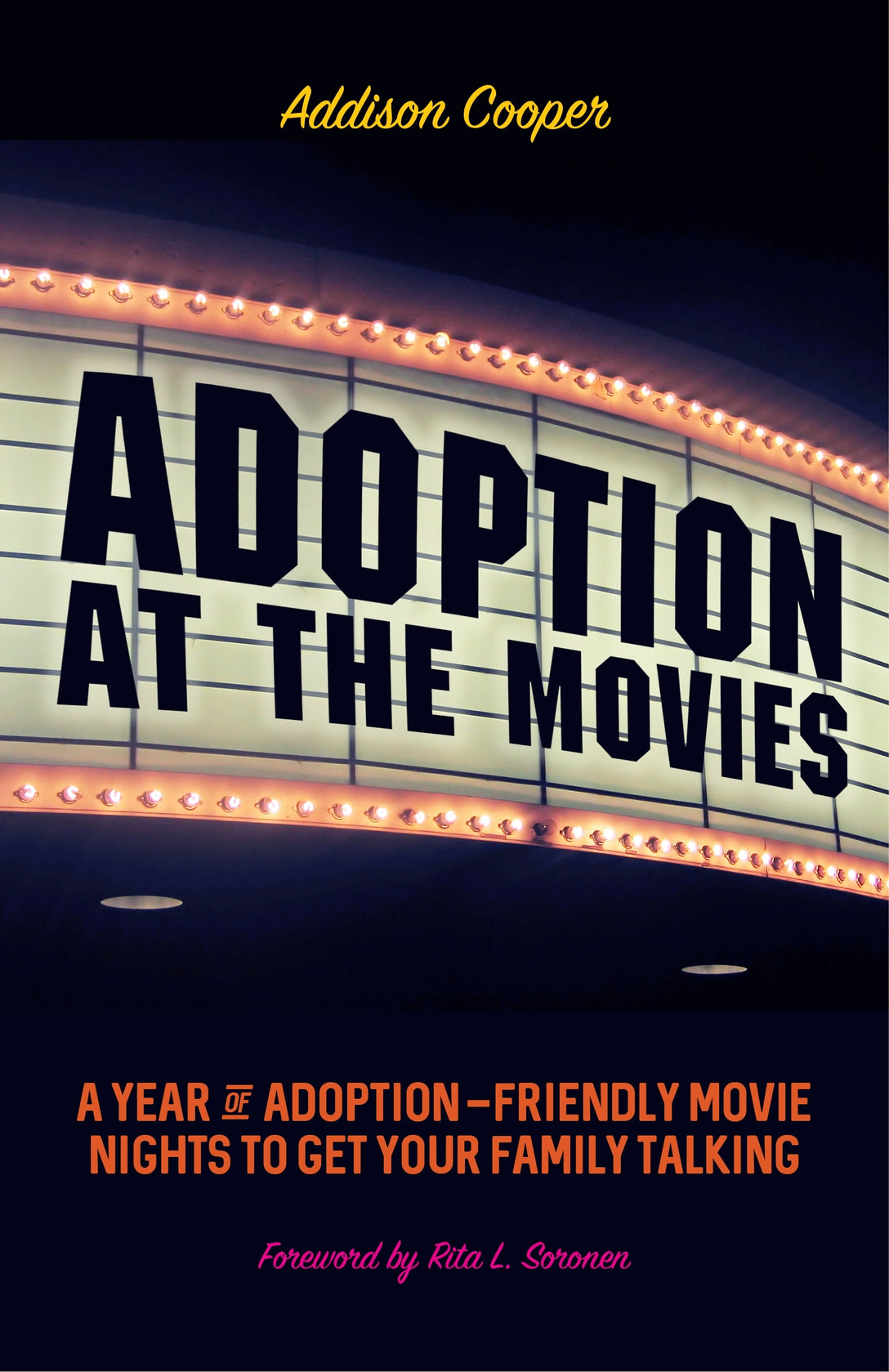
Press Reviews
Lori Holden of LavenderLuz.com, author of The Open-Hearted Way to Open Adoption.
Adoption at the Movies does two huge favors for adoptive parents. First, it reveals the whys and hows of having tough conversations with our kids. Second, through previews it guides us through how to best use films as conversation starters that can foster intimacy and trust, while alerting us to potential hazards. This way parents can make good decisions about what to see and what to wait on. I wish I'd had this guide from Day 1 as an adoptive parent to my children.
Christina Matanick, creator of ReMoved film
This book is comprehensive and thoughtful, a true resource for parents who wish to use films as a springboard for positive and helpful dialogue about adoption with their children. Addison has done the hard work for us, analyzing the most applicable stories of our day and guiding us through the potential of each film in helping our adopted children process their own stories.
Darren Fink, Co-Founder, Transfiguring Adoption
Adoption at the Movies takes your cinema entertainment and transforms it into a powerful tool to help your adoptive child to thrive in life.
Linda May Grobman, MSW, LSW, ACSW, Publisher/Editor of The New Social Worker Magazine
Movies have that magical ability to transport us to a different place and see things in new ways. They can be a useful, and sometimes less painful, vehicle for gaining insight into important life issues. With Addison Cooper's guidance, adoptive families can easily choose films to help them initiate important conversations in a non-threatening manner. Building on his popular Adoption at the Movies blog, Cooper's new book (of the same name) organizes 63 movies into four main categories. Alphabetical, age, and topic indexes add to the book's usability. Adoptive families and professionals who work with them will find this to be a welcome resource.
Eve Gilman, editor of Adoptive Families magazine
Open communication is vital to the well-being of any family, but parents through adoption may struggle to introduce the subject. Adoption at the Movies can help parents get past this stumbling block. When you watch a film with an adoption theme, the topic is already on the table, er, screen, so the conversation can unfold naturally. Cooper's clear-eyed assessments of dozens of films, including excellent discussion questions, should lead to many enjoyable evenings-and many more hours of healthy conversation-in any family formed through adoption.
Sally Donovan, author of No Matter What
Adoption at the Movies is a well-researched and accessible resource for all adoptive families who watch films together. Addison Cooper shows how many films aimed at children are essentially about absent or neglectful caregivers, loss and the search for belonging and why these themes may trigger difficult feelings in adopted children. His book gives parents the tools not only to make informed decisions and to prepare before watching a film but it suggests ways in which each film can be used as a starting point for a significant conversation. It is great to read something that not only forewarns but forearms too and which encourages families to explore themes and difficulties together and to use films as a resource. The book is easy to use, packed with popular films and appropriate to a wide age range. I wish I'd read it at the start of our journey as an adoptive family but I'll certainly be using it now.
Yasmin Mistry Director, Foster Care Film & Community Engagement Project (FCFCEP)
Adoption at the Movies is a great resource for any parent, educator or mentor who works with youth; and it's a comprehensive, must-have resource for foster and adoptive parents. The author provides discussion topics and activities, which will help make the most out of any family movie night.
Nicole Opper, Director/Producer, Off and Running: An American Coming of Age Story
This is the most insightful book I've read about parenting adopted teens. Naftzger draws from her own experience as an adoptee and a therapist to offer parents practical tools for improving communication with their child, without ever being preachy or prescriptive. Most importantly, she honors the emotions, integrity and intellectual capacity of the adopted teen at every turn, helping parents better understand the complexity of their child's experience.
